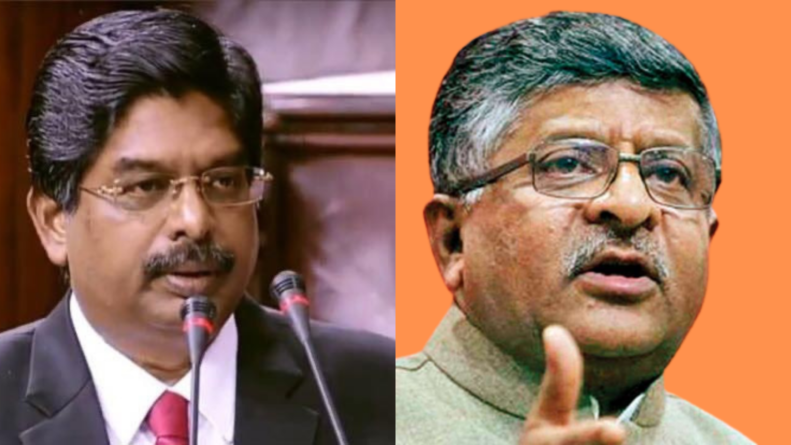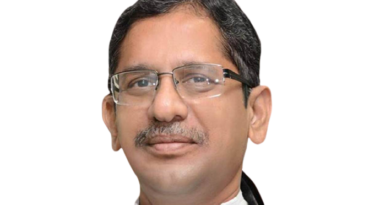‘To Ensure Speedy Disposal Of Cases Establishment Of Permanent Regional Benches Of Supreme Court Is The Need Of The Hour’ DMK MP P. Wilson Writes To Law Minister
(Judicial Quest News Network)
DMK MP (Rajya Sabha) Mr.P. Wilson had suggested to setting up of regional Benches of the Hon’ble Supreme Court of India at Delhi, Chennai Mumbai and Kolkata for North, South, East and West zones, apar from a constitution bench in Delhi.
Lat year the Mr. Wilson had written a letter to Minister of Law & Justice Hon’ble Ravi Shanker Prasad in the zero hour of the Parliament on 27-11-2019 on the Floor of Rajya Sabha.
It was clearly mentioned in the letter that there was an urgent need to introduce a bill to amend the constitution for the establishment of Permanent Regional Benches of Supreme Court.
To Avoid the Problem of Pendency of cases
Supreme Court of India being a Constitutional Court “Involving a substantial question of law as to the interpretation of [the Constitution”.
Due to the heavy work load, judges mostly sit in two-or three-judge benches to dispose of all kinds of cases.
As you are all aware, access to justice is a fundamental right enshrined under our Constitution. The framers of our constitution considered this right to be so sacrosanct that they enacted Article 32- a direct access to the highest Court of the land to enforce fundamental rights. More so the fundamental duty of the State is to ensure that opportunities for securing justice are not denied to any citizen by reason of economic or other disabilities.
Baba Sahib Dr. B.R. Ambedkar, the Chief Architect of our Constitution, in one of the Constituent Assembly debates has remarked that Article 32 is the heart and soul of the Constitution whereby the Supreme Court can be directly approached upon violation of personal Fundamental Rights.
The Standing Committees of Parliament recommended the setting up of Regional Benches of the Supreme Court in 2004, 2005, 2006 and 2008. Various Law Commission have also enunciated establishment of Regional Benches. In fact in the 229th Report, the Law commission submitted a report to the Central Government on the Need for Division of the Supreme Court into a Constitution Bench at Delhi and Cassation Benches in Four regions at Delhi, Chennai, Kolkata and Mumbai discussed in detail the possibility of setting up regional benches of the Supreme Court in India.
Data from Nick Robinson’s ‘A Quantitative Analysis of the Indian Supreme Court’s Workload (2011)’ suggests that 34.1% of the cases represent only 7.2% of the total population of India. Further the same report states that While averaging 2006, 2007, 2008, and 2011, the Delhi High Court had the most elevated recurrence of cases disposed off by it and matters appealed to the Supreme Court were to the extent of 9.3% only. The High Courts of Uttarakhand and Punjab are close to Delhi and have had an appeal rate to the Supreme Court of more than 5%. All other High Courts, other than Himachal Pradesh (3.2%) and Bombay (3.0%), had an appeal rate of under 3%. Madras had an appeal rate of only 1.1% and Orissa less than 1%. The four high courts with the most astounding appeal rates are likewise the four nearest to the Supreme Court in 2011.These high courts generated 34.1% of the appeals to the Supreme Court, yet catered to just 7.2% of the aggregate populace.
Thus, it can be easily interpreted that there is a substantial decrease in the percentage of appeal with growing distance from Delhi.
Therefore, the entire concept of wide access to justice is only to cater to the needs of the limited few restricted to people close to Delhi.
This is due to the reason that the greater the distance from Delhi, the more the cost of litigation, and due to this reason, many potential litigants cannot afford that cost owing to weak financial condition.
Orissa, for example, in the data analysis is shown to have the lowest appeal rate, at less than 1 per cent, seemingly the result of a combination of the State‟s low-income levels and distance from the national capital.
Thus, from the above given data it is perfectly clear that the door of the Supreme Court is accessible only to people close to Delhi and there is very limited accessibility to the people in the southern states as well as those in the north-eastern region.
For justice to reach to every nook and corner of the country and for establishing the faith of every individual to the judiciary, it is essential to establish the benches of the Supreme Court.
It is high time to amend Article 130 of the Constitution, since despite 70 years having passed since the coming into force of the Constitution, the fervent pleas of the people of the South, West and East and the members of the Bar in these States to establish Permanent Regional Benches of the Supreme Court is not heard and considered.
When such is the case, as elected representatives of the people, we cannot plead helplessness.
The prerogative to amend the Constitution is solely with the Parliament, subject only to the test of basic structure doctrine. I am sure you will agree that the Supreme Court sitting in Delhi alone, resulting in denial of access to the far reaches of this country cannot be termed as part of the ‘basic fabric’ of the Constitution.
The letter further mentioned that Therefore, I urge your good self to bring in a Government Bill to amend Article 130 and establish Permanent Regional Benches of Supreme Court at New Delhi, Mumbai, Chennai and Kolkotta and open the doors of the Supreme Court to all sections of Indians, so that Article 32 may be easily accessible and available to all and oblige.
[Read Letter]




